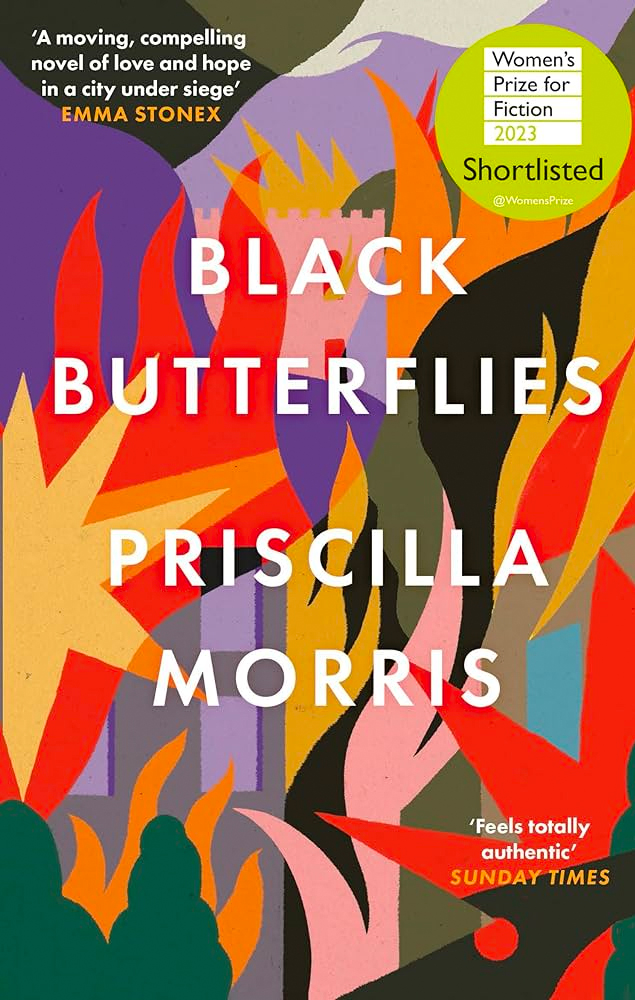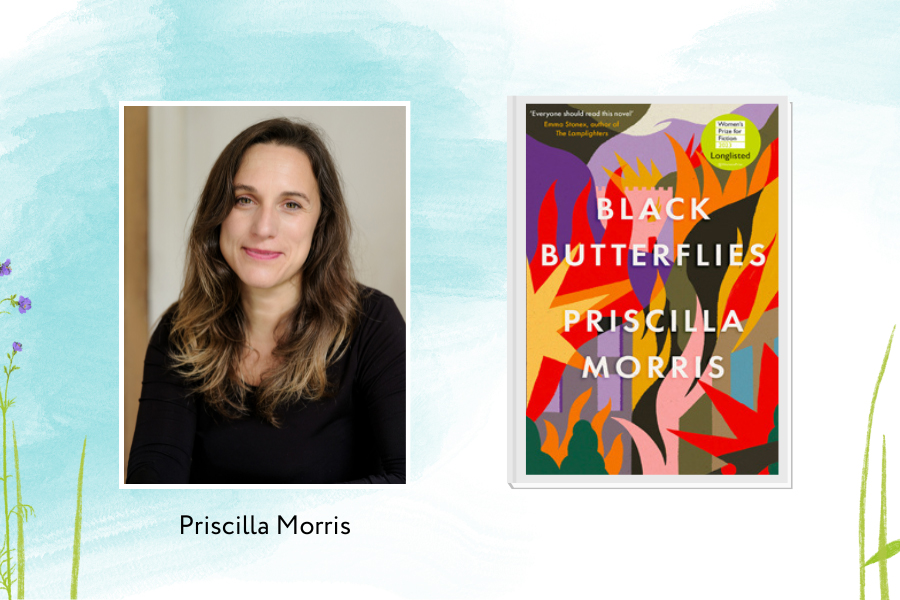Meet Priscilla Morris, author of the Women’s Prize 2023 longlisted novel Black Butterflies. A book The Times described as a “debut novel” that “will transport you back to Europe’s most recent war.”
The premise of this book is powerful and unique, so what was the inspiration behind the novel? We grabbed a quick five minutes with each of the authors behind the longlisted books to ask that question and more…
Describe your novel in one sentence as if you were telling a friend.
The siege of Sarajevo (1992-96), as seen through the eyes of Zora, a resilient artist and teacher who sends her family to safety in England before being trapped in her blockaded hometown for ten months.
What inspired you to write Black Butterflies?
My mother comes from Sarajevo, Bosnia, in the former Yugoslavia. She moved to England, where she married my English father, long before the Bosnian war started in 1992. Her relatives, however, were trapped in the terrible siege of her hometown. My father went out to rescue her parents in 1993, and we had a constant stream of war refugee relatives passing through our South London home. I was 19 at the time. Writing Black Butterflies is my personal response to the war that devastated my mother’s hometown of Sarajevo. The desire to understand the war, a love for the place where I’d spent childhood summers, and family stories of resilience, loss and survival inspired me. In particular, I was inspired by the stories of my great-uncle’s loss of his art studio during the war and my father’s rescue of my maternal grandparents. The image that was the catalyst for the writing of the novel was that of flames billowing through the windows of the Bosnian National Library, where my great-uncle had his studio. Art and books on fire. The charred pages of books floated over Sarajevo for days afterwards, and people called them ‘black butterflies’.
Are there any locations that have a special connection for you or your book?
Sarajevo and the surrounding mountains, Bosnia. I spent childhood summers there with my maternal grandparents and loved the place. My grandmother’s syrupy baklava, my father bartering over rugs in the cobbled marketplace, hiking through the forests in the nearby mountains, cooling off in fast-flowing rivers, riding the children’s train at Sarajevo Zoo, aunts and uncles smiling through a haze of cigarette smoke over long lunch tables laden with food. Everything seemed intense and colourful there, full of sunshine.

Which part of the book was the most fun to write? Which was the most challenging?
The most fun part was ‘Autumn’, the part after the fire. After writing the event that inspired my novel, I experienced a release of pressure and the story simply flowed, twisting in unexpected ways. The moment when Zora buys art materials in the market, for instance, and the first snowfall. There were stretches of ‘Winter’ – the candlelit exhibition, Zora and Mirsad’s snatched love, the story of the walled-up wife – that I also very much enjoyed writing. I found the beginning the most challenging: where and how to start, what to include, and what to leave out.
Which of the characters from the book would you most like to spend a weekend away with and why?
Zora, of course! I’d love to talk and walk along the seashore with her, hearing about how all the other moments of the siege that I haven’t imagined were, and how it’s been for her afterwards. She’s a dear friend.
What first inspired you to write?
Being read Roald Dahl’s Charlie and the Chocolate Factory at the age of six. It gave me so much pleasure that I thought it would be the finest thing in the world to be the voice in someone’s head conjuring up such worlds. I wanted to give back what I received.
What is the best piece of writing advice you have received?
It’s all about persistence and the desire to do it. If you keep putting the hours in – actually sitting down at your desk and writing the thing – you will get there.








